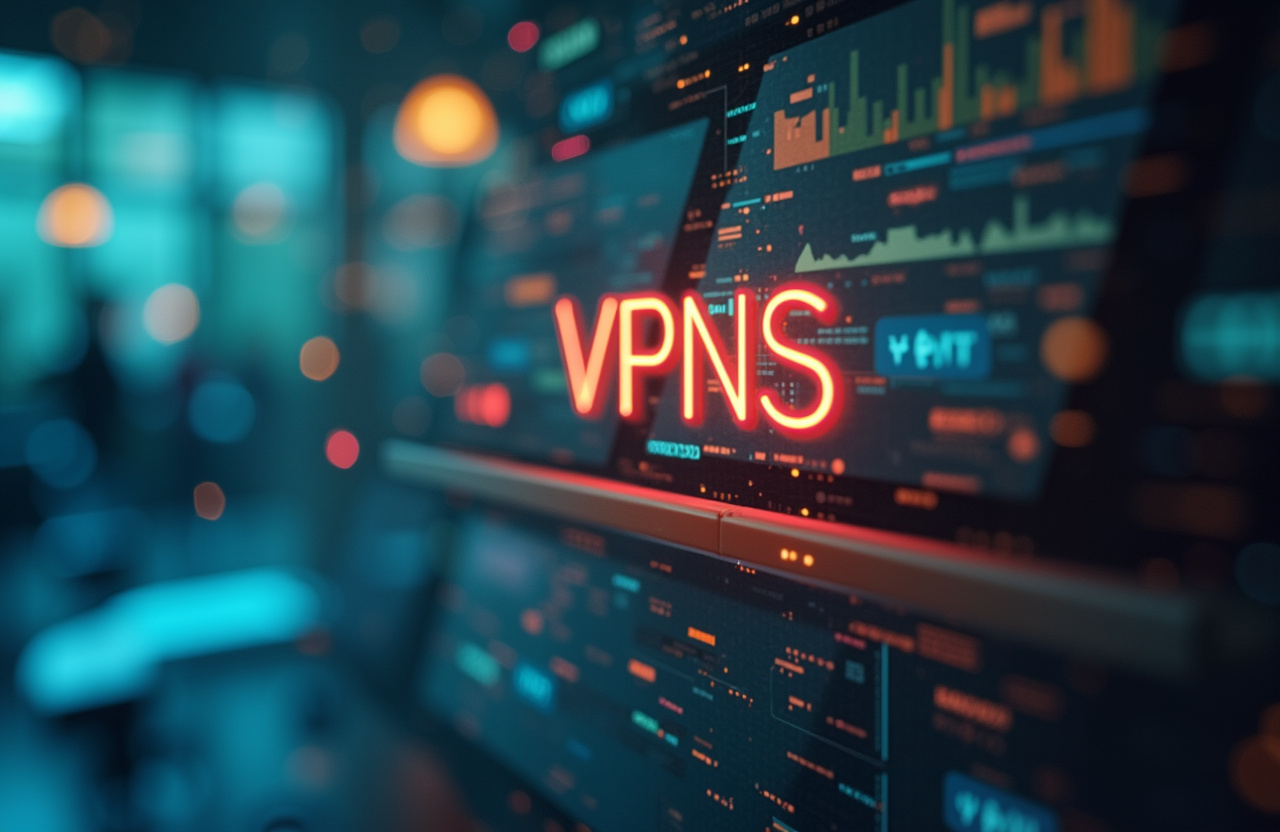VPNs for Virtual Yoga Studios: Ensuring Member Data Privacy

Table of Contents
VPNs for Virtual Yoga Studios: Ensuring Member Data Privacy
The burgeoning world of virtual yoga studios presents a unique blend of ancient practice and modern technology, offering accessibility and convenience to students worldwide. However, this digital evolution necessitates a heightened awareness of cybersecurity, particularly concerning member data privacy. This article delves into the crucial role of Virtual Private Networks (VPNs) in safeguarding sensitive information and ensuring secure online sessions for virtual yoga studios.
As these studios collect personal and financial data, health information and potentially recorded sessions, a VPN can provide an essential layer of protection, fostering trust and maintaining the confidentiality necessary for a thriving online wellness community. It explores the inherent vulnerabilities of online platforms, the specific benefits VPNs offer, and the importance of selecting the right VPN solution to uphold the ethical responsibilities of virtual yoga studios in the digital age. The core principles of yoga – mindfulness, peace, and well-being – should extend beyond the physical studio and permeate the virtual realm.
VPNs, therefore, become not just a technological solution but a vital component in upholding the ethical responsibilities of virtual yoga studios. The digital transformation of yoga, while expanding accessibility, creates a complex web of potential security vulnerabilities. Virtual yoga studios gather a wealth of personal data, including names, addresses, email addresses, payment information, and even health-related details disclosed during consultations or integrated fitness tracking data.
Without robust security measures, this sensitive information becomes a prime target for cybercriminals, potentially leading to identity theft, financial fraud, and reputational damage for the studio. Utilizing a VPN, a virtual yoga studio encrypts the internet connection of its members, masking member IP addresses. A VPN makes member data unreadable to malicious entities, further safeguarding the studio’s and member reputation.
The shift to online platforms requires a shift in security thinking. The traditional safeguards of a physical studio – locked doors, secure storage for records – translate into digital equivalents: strong encryption, secure servers, and proactive data protection policies. A VPN acts as a vital element in this digital security posture, creating a secure tunnel for data transmission and protecting member information from prying eyes.
Member piece of mind fosters greater trust and allows memebers to have peace of mind as they perform their yogi exercises. This peace of mind turns into long term customers and greater potential for expansion among the user base. Moreover, the use of a VPN extends beyond mere data protection; it contributes to a more seamless and secure virtual yoga experience.
With a VPN, data breaches are minimized, in addition sessions have high security protection that keeps the yoga instructors intellectual property safe. It ensures session security by preventing unauthorized access to live classes or recordings, safeguarding the studio's intellectual property and maintaining the exclusivity of its offerings. The risk of intrusion is diminished, allowing members to focus entirely on their practice without the distraction of potential security threats.
Virtual yoga studios must also be cognizant of the evolving landscape of data privacy regulations. Laws like the General Data Protection Regulation (GDPR) and the California Consumer Privacy Act (CCPA) mandate strict data protection requirements, including the implementation of appropriate security measures to prevent unauthorized access, disclosure, or loss of personal data. A VPN can significantly contribute to compliance with these regulations by providing a robust encryption and anonymity solution, reducing the risk of data breaches and demonstrating a commitment to data privacy.
This commitment not only builds trust with members but also helps avoid potentially hefty fines and legal repercussions associated with non-compliance. The integration of a VPN is not merely about ticking a box on a cybersecurity checklist; it is about actively demonstrating a commitment to the well-being and security of the community that the studio serves. This commitment fosters loyalty, strengthens the studio's reputation, and ultimately contributes to its long-term success in the increasingly competitive landscape of online wellness offerings.
The digital expansion necessitates a proactive approach to data protection, viewing security as an integral part of the virtual yoga experience, ensuring every online interaction is secure, private, and respectful of member data. The use of a 'yoga studio VPN' to protect 'member data privacy' and ensure 'session security' is not a luxury, but a necessity to maintain 'confidentiality' within the 'VPN for wellness' industry.
The first line of defense for any virtual yoga studio lies in understanding the fundamental principles of data security and privacy. This involves acknowledging the vulnerabilities inherent in online platforms and the potential risks associated with storing and transmitting sensitive information. Without adequate security measures, virtual yoga studios expose themselves and their members to a range of threats, including data breaches, identity theft, and unauthorized access to personal information.
A VPN acts as a secure conduit between the member's device and the yoga studio's server, encrypting all data transmitted and received. This encryption effectively shields sensitive information from interception by malicious actors, ensuring that member data remains private and confidential. This is especially crucial when members are accessing virtual classes from public Wi-Fi networks, which are notoriously vulnerable to cyberattacks.
Hackers often exploit weaknesses in public networks to intercept unencrypted data, making it easy to steal usernames, passwords, and other sensitive information. In addition to encryption, a VPN also masks the member's IP address, further enhancing their anonymity and making it more difficult for hackers to track their online activity or identify their location. This added layer of protection is particularly important for individuals who value their privacy and wish to minimize their digital footprint.
By implementing a VPN, virtual yoga studios demonstrate a proactive commitment to data security, building trust and confidence among their members. This commitment is not only ethically sound but also makes good business sense, as a strong reputation for security can be a significant competitive advantage in the crowded virtual wellness market. Furthermore, a VPN can help virtual yoga studios comply with data privacy regulations, such as GDPR and CCPA, which mandate strict security measures for protecting personal data.
Failure to comply with these regulations can result in hefty fines and reputational damage. These laws also require studios to implement appropriate technical and organizational measures to protect personal data from unauthorized access, disclosure, or alteration. A well-configured VPN can provide the necessary security infrastructure to meet these compliance requirements, minimizing the risk of legal and financial penalties.
The studio must ensure that the VPN provider itself adheres to strict data privacy standards and has a clear and transparent privacy policy. The effectiveness of a VPN depends on several factors, including the strength of the encryption protocol, the server infrastructure, and the VPN provider's privacy policy. It's essential for virtual yoga studios to choose a reputable VPN provider with a proven track record of security and reliability.
Researching different VPN protocols (e.g., OpenVPN, IKEv2/IPsec) and selecting one that offers robust encryption is crucial. Also studying the physical server locations of the VPN provider, ensuring they align with the geographical distribution of the studio's members. Lastly the VPN provider must have a strict "no-logs" policy, meaning they do not track or store user activity data.
The selection process should involve thorough research and due diligence to ensure that the chosen VPN meets the specific needs of the studio and its members. By prioritizing data security and privacy, virtual yoga studios can create a safe and welcoming online environment where members can focus on their practice without worrying about the security of their personal information. A secure approach to data handling builds stronger trust with members, encourages new memberships, and protects the overall brand reputation.
An all encompassing securuty integration that utilizes a 'yoga studio VPN', ensures 'member data privacy' and 'session security', reinforcing the studio's commitment to 'confidentiality' as a key component of a 'VPN for wellness' initiative.
Beyond encryption and enhanced data security, VPNs provide a multitude of benefits that contribute to the overall security and functionality of virtual yoga studios, creating a more streamlined and user-friendly experience for both instructors and members. One significant advantage is the ability to bypass geographical restrictions, allowing members to access classes from anywhere in the world, which is particularly useful for individuals who travel frequently or live in countries with limited internet access or censorship. A VPN can mask the member's true location, making it appear as if they are connecting from a different country that does not contain those geographic restrictions.
This is also helpful for yoga studios that offer classes in multiple languages, as members can choose to connect to a server in the appropriate region to access the correct language version of the content and receive updated information on classes that are most relevant for them. Furthermore, VPNs can enhance the performance of online yoga sessions by optimizing network connectivity and reducing lag. Buffering and slow, choppy video feeds can be incredibly frustrating and disruptive to the meditative flow of a yoga practice.
By routing traffic through optimized servers, members can enjoy smoother, more reliable streaming, even when connecting from areas with poor internet connectivity. This creates a better overall user experience, encourages engagement, and reduces the likelihood of members becoming discouraged and abandoning their virtual practice. Some VPN providers offer specialized servers that are optimized for streaming video, which can significantly improve the quality of the virtual yoga experience.
Another important benefit of VPNs is their ability to protect against Distributed Denial-of-Service (DDoS) attacks, which are a common threat to online businesses. DDoS attacks involve overwhelming a server with a flood of traffic, making it unavailable to legitimate users. This can effectively shut down a virtual yoga studio's online platform, preventing members from accessing classes and causing significant disruption to the business.
A VPN can act as a shield against these attacks by filtering out malicious traffic and ensuring that the yoga studio's server remains accessible to its members. This is especially crucial for studios that rely on live streaming for their classes, as a DDoS attack during a live session can disrupt the class and negatively impact the member experience. As for copyright concerns, VPNs can offer a level of security as well to streaming services.
VPNs prevent outsiders from streaming live videos, or downloaded paid content. Live instructors often have their on personal copyrights and a VPN can contribute to instructors feeling more safe within your platform. In addition to these technical benefits, VPNs also provide a sense of peace of mind for members, knowing that their online activity is protected from prying eyes.
A VPN helps members to feel more secure and confident whilst on the virtual yoga platform. This can be a significant factor in attracting and retaining members, particularly those who are concerned about their online privacy. Building trust, by implementing a 'yoga studio VPN', can increase 'member data privacy' and 'session security', maintaining 'confidentiality', and overall creating a 'VPN for wellness'.
VPNs for Services: Enhancing Security for Subscription-Based Platforms
Implementing a VPN within a virtual yoga studio's infrastructure requires a thoughtful and strategic approach, moving beyond simply subscribing to a service and hoping for the best. It necessitates a thorough assessment of the studio's specific security needs, an understanding of the different VPN options available, and a clearly defined plan for deployment and ongoing maintenance. A crucial first step is to analyze the types of data the studio collects, how it's stored, and how it's transmitted.
This includes personal information, payment details, health-related data, and any recordings of virtual sessions. Identifying potential vulnerabilities in the data handling process allows the studio to tailor the VPN implementation to address the most pressing security risks. For instance, if the studio uses a third-party platform for hosting virtual classes, it's essential to ensure that the platform is compatible with the VPN and that all data transmitted through the platform is properly encrypted.
This might involve configuring the VPN to route all traffic through a secure tunnel or integrating the VPN directly into the platform's security settings. Once the studio has a clear understanding of its security needs, the next step is to evaluate the different VPN options available. Factors to consider include the VPN provider's reputation, the strength of its encryption protocols, the number of servers it operates, its data logging policies, and its compatibility with the studio's existing infrastructure.
It's crucial to choose a provider that offers robust security features, a wide network of servers, and a clear commitment to data privacy. The data logging policies are particularly important, because virtual yoga studio must ensure that the VPN provider does not track or store any user activity data, as this could compromise the privacy of members. Deployment of the VPN should be done in a phased approach, starting with a pilot program involving a small group of instructors and members.
This allows the technical team to identify and resolve any issues before rolling out the VPN to the entire user base. Providing clear instructions and support resources to members is essential for ensuring that they can easily connect to the VPN and understand its benefits. This might involve creating tutorials, FAQs, and a dedicated support channel for VPN-related inquiries.
After launching VPN, the studio must continually monitor the VPN's performance and security, looking for potential vulnerabilities and addressing any issues that arise. This includes Regularly updating the VPN software, monitoring server uptime, and reviewing the VPN provider's security announcements. Besides monitoring VPN performance, virtual yoga instructors can also engage in real ethical hacking exercises to test platform safety.
Simulated phishing scams and man in the middle attacks can test the safety of the users. The costs associated with implementing and maintaining a VPN must be factored into the studio's budget. There are many different VPN pricing plans available, ranging from free services to enterprise-grade solutions.
A well-budgeted and maintained 'yoga studio VPN' can ensure 'member data privacy' and add an extra layer of 'session security' which helps keep 'confidentiality' and reinforces the studio's dedication within the landscape of a 'VPN for wellness'.
The Future of VPNs: Integration, AI, and Enhanced Security
Looking ahead, the role of VPNs in virtual yoga studios will only continue to grow in importance as cyber threats become more sophisticated and data privacy regulations become more stringent. Staying ahead of the curve requires a proactive approach to security, constantly evaluating emerging technologies and adapting security measures to meet evolving threats. One key area of focus will be the integration of VPNs with other security tools, such as firewalls, intrusion detection systems, and multi-factor authentication, to create a layered defense strategy.
By combining multiple security measures, studios can significantly reduce the risk of data breaches and unauthorized access. This multi-layered approach should involve regular security audits and penetration testing to identify and address any weaknesses in the system. These audits should be conducted by independent cybersecurity experts, who can provide unbiased assessments of the studio's security posture and recommend areas for improvement.
Staying informed about the latest cyber threats and vulnerabilities is crucial for maintaining a strong security posture. This involves subscribing to security news feeds, attending cybersecurity conferences, and engaging with the cybersecurity community. By staying abreast of the latest threats, studios can proactively address vulnerabilities and prevent potential attacks.
Training for staff, as it empowers members to remain safe within the platform. By teaching members, the yoga studio can indirectly create brand awareness and empower those in the staff to grow within their profession. Furthermore, the development of more user-friendly VPN solutions will play a significant role in expanding the adoption of VPNs among virtual yoga studios.
As VPN technology becomes more accessible and easier to use, more studios will be able to integrate VPNs into their infrastructure without requiring extensive technical expertise. User-friendly interfaces, automated configuration tools, and simplified management interfaces will make it easier for studios to deploy and maintain VPNs, regardless of their technical capabilities. The ethical responsibility of virtual yoga studios in protecting member data privacy extends beyond merely complying with legal requirements.
It involves creating a culture of security within the studio, where data privacy is valued and prioritized at all levels of the organization. This includes providing ongoing training to staff on data privacy best practices, communicating clearly with members about the studio's data privacy policies, and being transparent about how member data is collected, used, and protected. A commitment to ethical data handling builds trust with members and strengthens the studio's reputation.
By prioritizing data privacy, virtual yoga studios can create a safe and welcoming online environment where members can focus on their practice without worrying about the security of their personal information. In conclusion, VPNs are an indispensable tool for virtual yoga studios seeking to ensure member data privacy and session security. By understanding the benefits of VPNs, implementing them strategically, and staying informed about the latest security trends, virtual yoga studios can create a secure and thriving online community that protects the confidentiality and well-being of its members.
Ultimately, proper 'yoga studio VPN' implementation that focuses on 'member data privacy' and 'session security' and values 'confidentiality' is an essential component of a top-tier 'VPN for wellness'.
Stay Updated
Get the latest VPN news, tips, and exclusive deals to your inbox.




